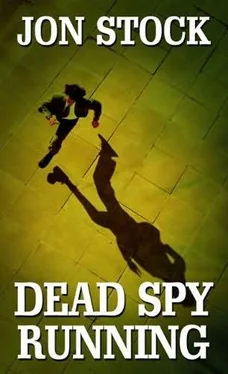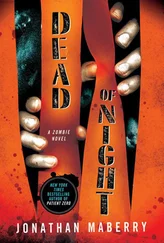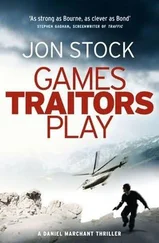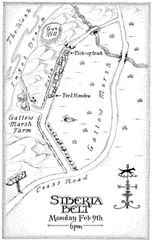Jon Stock - Dead Spy Running
Здесь есть возможность читать онлайн «Jon Stock - Dead Spy Running» — ознакомительный отрывок электронной книги совершенно бесплатно, а после прочтения отрывка купить полную версию. В некоторых случаях можно слушать аудио, скачать через торрент в формате fb2 и присутствует краткое содержание. Год выпуска: 2009, Издательство: St. Martin, Жанр: Триллер, на английском языке. Описание произведения, (предисловие) а так же отзывы посетителей доступны на портале библиотеки ЛибКат.
- Название:Dead Spy Running
- Автор:
- Издательство:St. Martin
- Жанр:
- Год:2009
- ISBN:нет данных
- Рейтинг книги:3 / 5. Голосов: 1
-
Избранное:Добавить в избранное
- Отзывы:
-
Ваша оценка:
- 60
- 1
- 2
- 3
- 4
- 5
Dead Spy Running: краткое содержание, описание и аннотация
Предлагаем к чтению аннотацию, описание, краткое содержание или предисловие (зависит от того, что написал сам автор книги «Dead Spy Running»). Если вы не нашли необходимую информацию о книге — напишите в комментариях, мы постараемся отыскать её.
Dead Spy Running — читать онлайн ознакомительный отрывок
Ниже представлен текст книги, разбитый по страницам. Система сохранения места последней прочитанной страницы, позволяет с удобством читать онлайн бесплатно книгу «Dead Spy Running», без необходимости каждый раз заново искать на чём Вы остановились. Поставьте закладку, и сможете в любой момент перейти на страницу, на которой закончили чтение.
Интервал:
Закладка:
Spiro threw Baldwin a glance as Leila walked from her third-row seat to join him and Johnson on the stage. For a moment she was standing in the light of the projector, an image of the Lotus Temple playing across her face. She moved to one side, putting a hand up to shield her eyes.
‘There are more than five million Bahá’ís in the world,’ she began, emotion rising in her voice. ‘My mother happens to be one of them. The biggest population is in India, the second largest is in Iran, where it all started.’ She paused, composing herself, glancing at Baldwin. ‘They believe that Moses, Buddha, Krishna, Jesus, Mohamed and Baha’u’llah, the religion’s founder, were all messengers of the same universal God. Baha’u’llah was born in nineteenth-century Persia, so it’s a relatively new religion. He believed in spiritual unity, world peace, compulsory education for all. He was also against any form of prejudice.’ Leila stopped again. ‘I’m sorry,’ she said. ‘It’s the heat.’
But everyone knew it was more than that.
‘You can begin to understand why POTUS is so keen to visit the temple,’ Spiro said, stepping forward to stand beside her. ‘You want to take a break, babe?’ He had one arm around her now, squeezing a shoulder.
‘I’m fine, really,’ Leila said, pouring herself a glass of water from a plastic bottle on the table beside her. ‘The Bahá’í House of Worship, better known as the Lotus Temple, was designed by an Iranian architect. Its distinctive shape is based on a partially open lotus flower.’
‘It kind of reminds me of the Sydney Opera House,’ Spiro said.
‘They say it’s the most visited building in the world,’ Leila continued. ‘Everyone’s welcome: Hindus, Jews, Christians, Parsees, Muslims, you name it. The President will enjoy his visit. It’s a very special place.’
Leila went back to her seat, but she was desperate to get out of the stuffy room, out of Delhi, away from India. She wanted to be with her mother.
‘Thanks, Leila,’ Spiro said. ‘We appreciate it.’ The room applauded, several of the Secret Service officers turning in their seats to look at her. Spiro glanced at Baldwin as he continued. ‘Given her specialist knowledge, Leila has been asked to join the POTUS party for this leg of the trip, representing the Company.’
‘With the greatest respect to Leila here, isn’t that a little unorthodox?’ Baldwin asked. ‘We all appreciate what she did in London, but…’
‘No, David, it’s not unorthodox,’ Spiro interrupted. ‘Not at all. It’s a great honour for the Company, that’s what it is.’
‘The honour’s all ours,’ Johnson said, sensing the tension. ‘The President wants to thank Leila personally for her good work in London, as all of us in the Service do.’ Another round of applause spread across the hall. ‘It’s no secret that we owe Langley. And it’s no secret that we don’t like to admit it. Needless to say, we’re not expecting to have to rely on Leila’s heroics this time.’
43
There was something about the network of cave-like huts on the hillside that reminded Marchant of Tora Bora. He’d never been to Afghanistan, but he had seen the satellite images, the route Osama Bin Laden had taken when he had given the Americans the slip. Each of the wooden shacks had been built deep into the red Konkan hillside. The one he was now sitting in went back twenty feet, although from the outside it looked like a small, single-room shack. There was no one else inside it apart from Salim Dhar, who had a restless energy about him as he brewed up a saucepan of milky cardamom chai on a small gas stove. Outside the door, a man sat on a plastic chair with an AK47 across his knees, smoking a cigarette.
‘We have so much in common, you and I,’ Dhar said in perfect English.
‘Except that I put the milk in afterwards, and you boil it all together, along with a couple of kg of sugar.’
‘And who has the better teeth?’ Dhar said, turning to hand Marchant a stainless steel beaker of tea, holding it by the rim. His smile was perfect white.
Marchant was struggling to understand the warmth of Dhar’s welcome. From his Africa days he was used to the hospitality of enemies, that polite respite from hostilities while warring factions broke bread together before the slaughter. But there was something different going on here, and he didn’t know what it was.
From the moment Dhar had greeted him at the bottom of the hill with a wide smile and a warm embrace, Marchant’s mind had raced with possibilities. The taller of his two escorts had been dispatched up the hill, where Marchant noticed a number of men dotted around the rocky ridge. The second fisherman had accompanied Marchant and Dhar down through a deep valley of coconut groves and dense jungle, at the other side of which was the collection of huts. At least ten men were sitting around, some smoking, all with guns.
Marchant clocked a mix of nationalities: North African Arabs, Middle Eastern. No one seemed too bothered by his arrival. He wondered whether Dhar had concocted a cover story to reassure them about his presence. But did Dhar really know who he was? Was he aware that, until a month ago, his visitor spent his days and much of his nights working for an organisation dedicated to eliminating people and places like this? But Dhar had appeared relaxed, asking about his journey, the Westerners on the beaches, how he found the climate — the small-talk of casual acquaintances.
Now, though, as Dhar sat down at the flimsy table opposite him, his head beading with sweat, Marchant sensed that the conversation was about to change. Possibly his life, too. He thought of his father visiting Dhar in jail, and felt the pit of his stomach tighten. Had he been welcomed equally warmly? Were the Americans right to question his father’s loyalty to the West? Marchant reminded himself that Dhar had attacked two US embassies in cold blood, killed many US Marines.
‘You look a bit like him, you know,’ Dhar said in English. ‘A family likeness is there — the good looks.’ Marchant sipped his tea, grateful for its spiced sweetness. Dhar was wearing a T-shirt cut off at the shoulders, revealing muscles that could only have been toned in a gym. He was tall, his face long and angular, with a skin colour much lighter than that of the local Karnatakans. The nose was prominent, the eye-sockets deep, but none of it seemed out of proportion or surprising. Perhaps it was habit, but Marchant kept glancing at Dhar’s low, distinctive earlobes. They were the hardest parts of a face to disguise.
‘It’s good of you to see me,’ Marchant said.
‘My fight is not so much with the British, although your government’s support for the infidel is craven.’ At a flick of a switch, Dhar’s voice had hardened into the familiar tones of the jihadi . ‘I received a message that you might be coming.’
‘Who from?’
‘An old family friend.’
Marchant assumed it must have been Uncle K. ‘I need to know why my father visited you in Kerala.’
Dhar smiled at Marchant again, in a way that disarmed him. He was holding all the cards.
‘He wanted a name. Someone in London.’
At last, Marchant thought. He had come a long way to hear this. ‘Why did he think you would tell him?’
Dhar paused, glancing out of the door at the guard. His voice became quieter.
‘Because I had once — foolishly — agreed to assist our family friend.’
‘And did you give my father a name?’
‘No. I couldn’t help him.’
‘Couldn’t?’
‘I didn’t know it. He said someone in London was destroying all that he had worked for. From the inside. I couldn’t help him.’
‘Do you know the name now?’
Читать дальшеИнтервал:
Закладка:
Похожие книги на «Dead Spy Running»
Представляем Вашему вниманию похожие книги на «Dead Spy Running» списком для выбора. Мы отобрали схожую по названию и смыслу литературу в надежде предоставить читателям больше вариантов отыскать новые, интересные, ещё непрочитанные произведения.
Обсуждение, отзывы о книге «Dead Spy Running» и просто собственные мнения читателей. Оставьте ваши комментарии, напишите, что Вы думаете о произведении, его смысле или главных героях. Укажите что конкретно понравилось, а что нет, и почему Вы так считаете.












